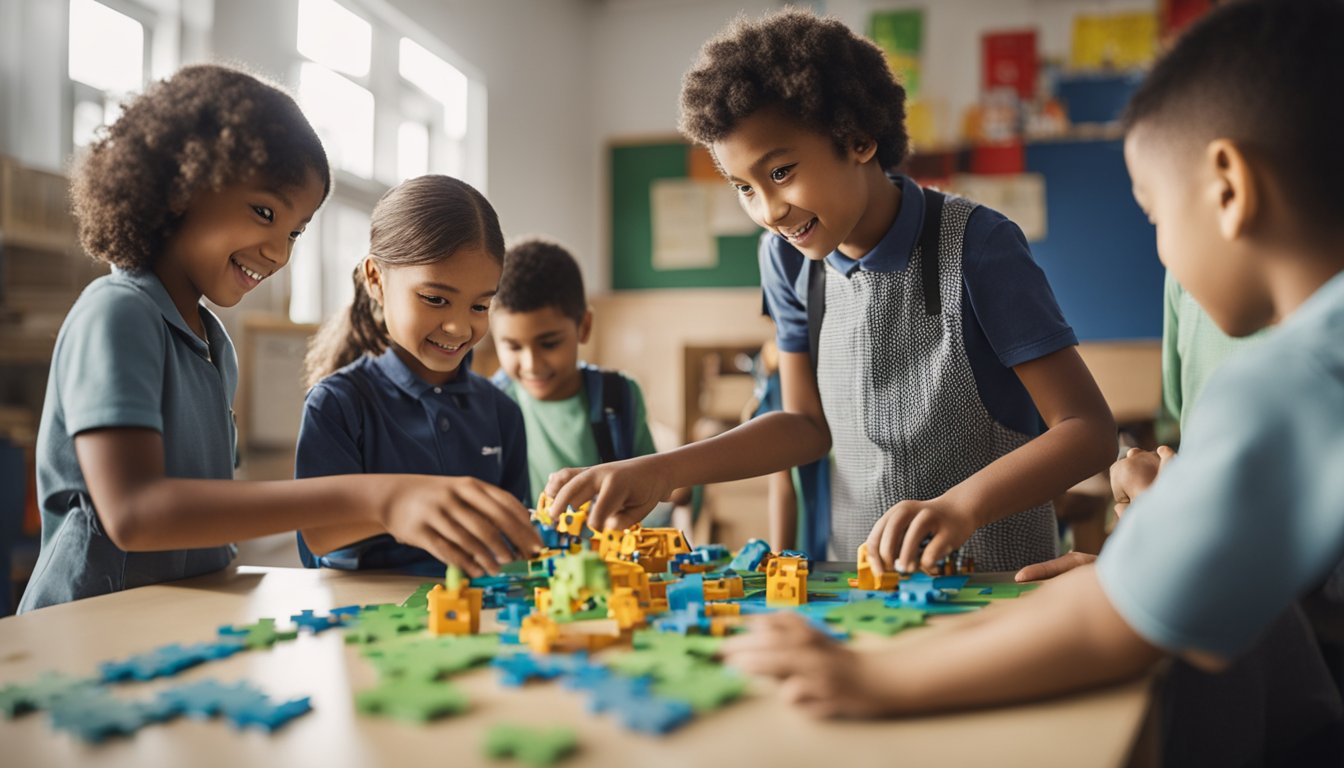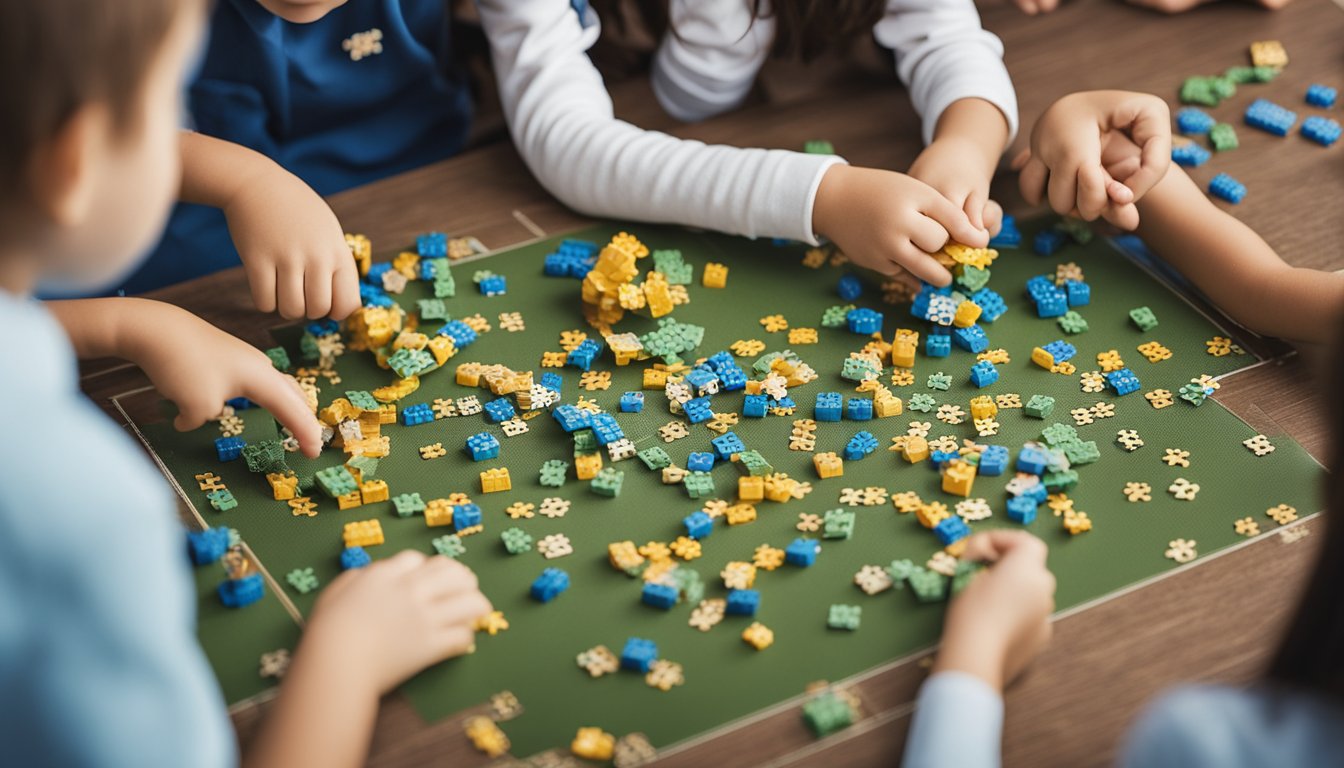Late updated: 11 Dec 2024 15:12
Written by:
Unique Ways To Encourage Critical Thinking In Children: Innovative Strategies for Early Development
Critical thinking is an essential skill for young minds, shaping how they understand and interact with the world. In our rapidly changing society, it's vital for children to develop these abilities early to navigate the complexities of life. Integrating creativity into play encourages children to explore new ideas and solve problems in innovative ways. These unique approaches are not only engaging but also help in building foundational cognitive skills.

Our focus is to make learning engaging and effective by combining play with analytical skills. Encouraging curiosity can help children develop strong critical thinking abilities, which fosters resilience and adaptability. Simple changes in how we approach education can make a significant impact on a child's development.
As we delve into these methods, it's important to consider how they fit into your family's routine. By using game-based learning scenarios and real-life problem-solving exercises, we can make critical thinking a natural and enjoyable part of their daily lives. Encouraging dialogue and reflection will further nurture their ability to ask questions, think independently, and view challenges as opportunities for growth.
Key Takeaways
- Integrate creativity into daily activities to foster critical thinking.
- Encourage dialogue to develop strong analytical skills.
- Use play to make learning an engaging experience.
Fostering a Culture of Curiosity and Creativity
Creating an environment that encourages curiosity and creativity is pivotal for cognitive and emotional development in children. Our focus will be on strategies that engage kids through open-ended inquiry, interactive scenarios, games, and artistic activities.
The Role of Open-Ended Questions
Open-ended questions are a gateway to imaginative thinking and critical engagement. By asking questions that have no single correct answer, we prompt children to explore various possibilities. These inquiries encourage them to articulate thoughts and provide reasoning, fostering a deeper level of understanding. When kids think about why, how, and what if, they are required to connect different ideas and consider alternative perspectives. This technique enhances curiosity, enabling them to learn and explore without constraints.
Incorporating Role-Playing into Learning
Role-playing activities allow children to assume different characters in varying scenarios, sparking creativity and empathy. Through this, they explore diverse reactions and problem-solving approaches. By engaging in imaginative play, children learn to negotiate, communicate, and develop social skills. Role-playing can be integrated into subjects like history or literature, where kids assume the roles of historical figures or characters, making lessons more engaging and memorable. This approach not only strengthens critical thinking but also nurtures emotional intelligence.
Utilising Puzzles and Games for Cognitive Skills
Puzzles and games play a significant role in developing problem-solving capabilities. They challenge children to think strategically and apply logical reasoning. Activities like jigsaw puzzles, board games, or digital apps designed for educational purposes sharpen focus and enhance spatial awareness. Incorporating these elements into daily routines encourages children to approach challenges methodically and persistently. As they work through complex situations, they build resilience and adaptability in thinking.
Stimulating Imagination Through Storytelling and Art
Storytelling and artistic expression are powerful tools for nurturing creativity and imagination. Through storytelling, children learn to weave narratives, expanding their vocabulary and comprehension. Encouraging kids to create their own stories stimulates their imaginative skills and helps them explore different worlds and ideas. Similarly, engaging in art, whether it's drawing, painting, or crafting, allows children to express themselves visually and transfer abstract thoughts onto paper. These activities build confidence and creativity by allowing them to express unique interpretations.
Developing Analytical and Reflective Thinking Skills

In our exploration of analytical and reflective thinking, we focus on scientific and mathematical applications, integrate Bloom's Taxonomy into daily learning, engage children in team-based problem solving, and leverage coding for logical reasoning development. These strategies cultivate critical thinking skills through various educational approaches.
Teaching Critical Thinking Through Science and Maths
Incorporating science and maths into education provides a rich foundation for developing analytical skills. Science encourages inquiry and data analysis, while maths promotes logical reasoning through problem-solving exercises. By exploring scientific experiments, students learn to make informed decisions based on evidence. In mathematics, solving equations and engaging with real-world problems enhances their ability to critically assess different scenarios and apply logical methods effectively.
Applying Bloom’s Taxonomy in Everyday Learning
Bloom’s Taxonomy offers a framework for higher-order thinking, transitioning from basic knowledge to complex evaluation. We can apply this model in everyday learning to strengthen skills such as analysis and evaluation. By asking questions that require students to compare, contrast, and hypothesise, we foster deeper critical thinking. Activities that stimulate strategic thinking and reflection help students to advance from simple understanding to insightful application and creation of new ideas.
Encouraging Problem Solving Through Team Projects and Activities
Team-based projects encourage collaborative problem-solving and strategic thinking. When children work together, they gain exposure to diverse perspectives, enhancing their reasoning and decision-making capabilities. By tackling group challenges, they learn to analyse situations, reflect on different approaches, and come up with innovative solutions. Such activities not only build critical thinking skills but also prepare children for dynamic environments where teamwork and communication are key.
Promoting Logical Reasoning with Coding Exercises
Coding activities are excellent for cultivating logical thinking and reasoning. As students write and debug code, they must apply systematic and analytical skills, enhancing their ability to think critically. Through coding, children learn pattern recognition, algorithmic thinking, and how to approach complex problems methodically. By engaging with programming, they develop the capacity to analyse information, test hypotheses, and make strategic decisions, integral components of strong critical thinking skills.
Frequently Asked Questions

Encouraging critical thinking in children involves engaging them with activities and educational practices that stimulate analytical and creative skills. Understanding how to nurture these skills early can significantly affect their future problem-solving capabilities.
What activities can parents utilise to foster critical thinking skills in children?
Parents can engage their children in puzzles, brainteasers, and strategy-based games, which help them think critically to solve problems. Reading books and discussing stories encourages deeper analysis and comprehension.
In what ways can educators incorporate critical thinking exercises into their curriculum for young students?
Educators can introduce projects that require research and presentation, fostering an environment where students question and explore topics. Group discussions and debates further allow children to view situations from multiple perspectives.
How can we guide children to think more analytically and less superficially?
We can encourage children to ask questions and explore various solutions instead of accepting first impressions. Providing them with opportunities to make decisions and evaluate consequences is key.
What approaches can be taken to enhance a child's problem-solving abilities?
Integrating scenario-based learning where children face imaginary obstacles can improve their problem-solving skills. Encouraging them to brainstorm different solutions and discuss their potential outcomes is beneficial.
How does the integration of creative thinking exercises impact a child's cognitive development?
Creative thinking exercises allow children to form unique connections between ideas, enhancing their cognitive flexibility. Engaging in arts and storytelling broadens their approach to challenges, fostering greater cognitive engagement.
What resources are available for teaching critical thinking to preschoolers?
There are numerous books, online resources, and educational games tailored for preschoolers that focus on enhancing critical thinking. Additionally, community workshops and seminars provide valuable insights and strategies for parents and educators.
